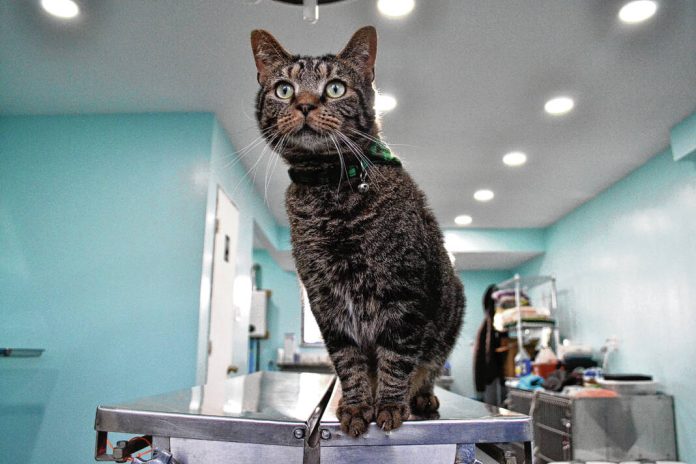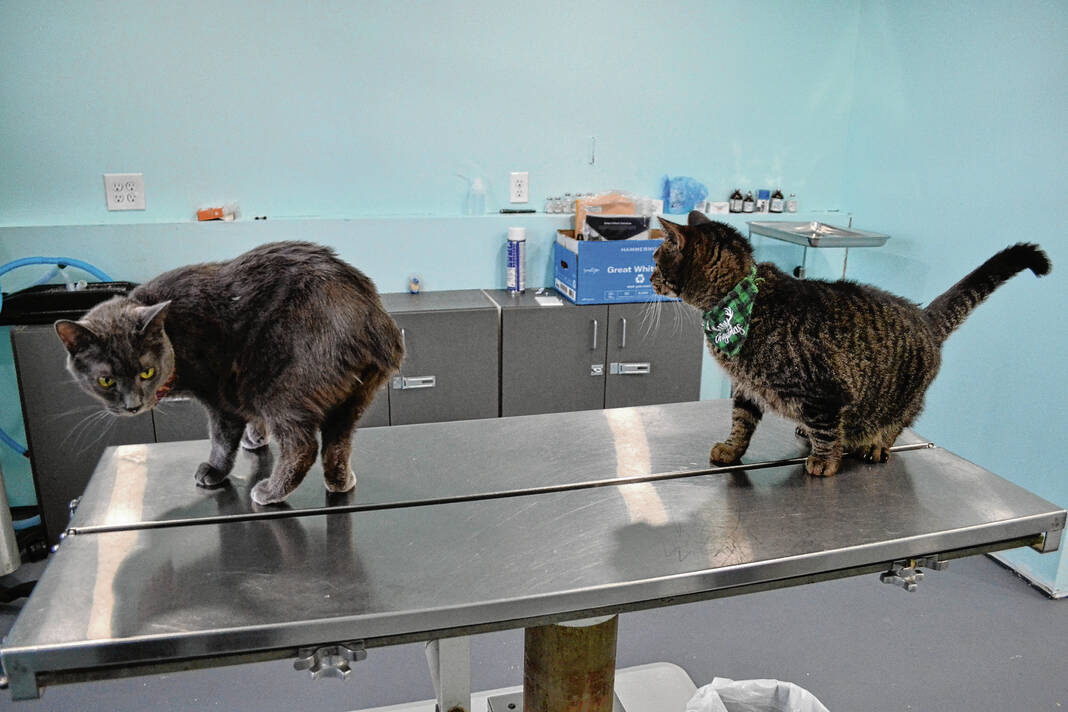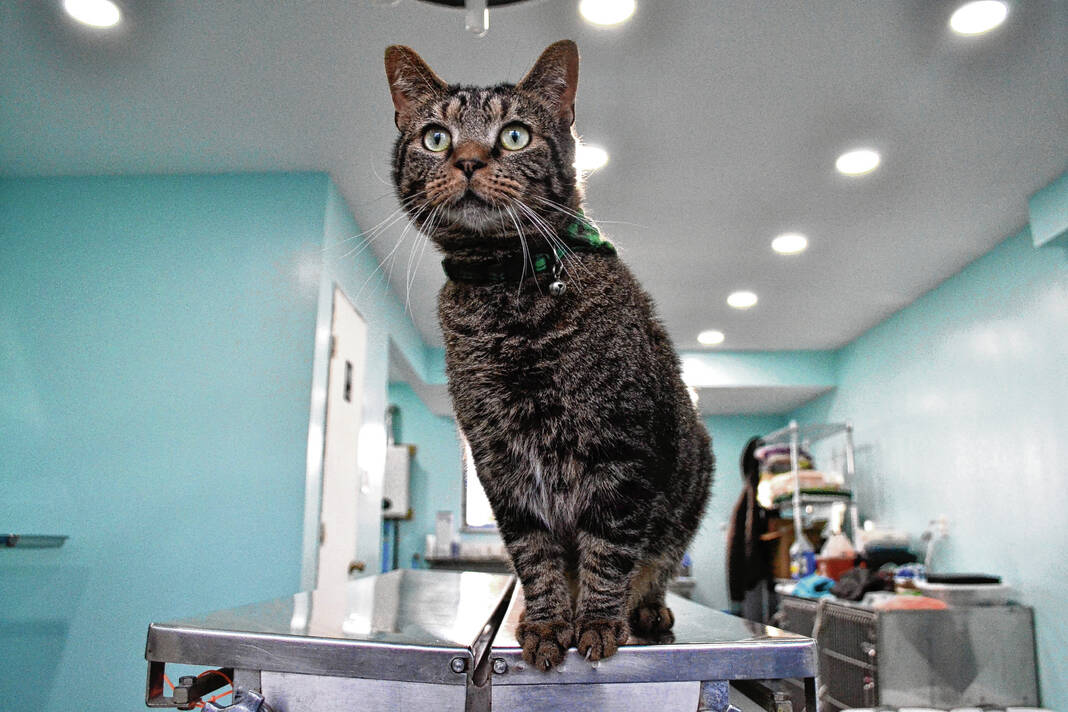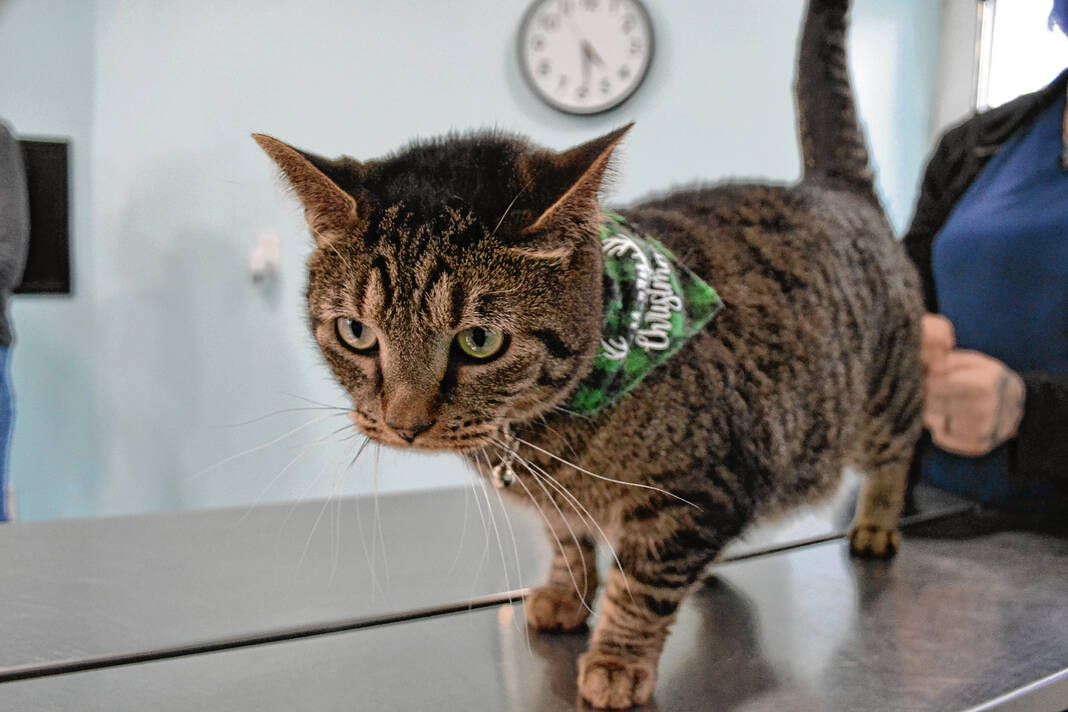Johnson County’s only low-cost spay and neuter clinic recently unveiled a new surgery space to address the overpopulation of local animal shelters.
Johnson County Community Cats, a local nonprofit that provides services for stray cats, has longed for a surgery space for over a decade, said Janet Gorrell, board president. The newly established procedure room will keep their operations local and increase the number of surgeries they can perform.
JCCC volunteers had previously been transporting cats to a surgery space in Marion County, which limited their ability to assist felines. The organization has provided spay and neuter services for around 30 cats each week, but that figure has since reduced to 10 following the COVID-19 pandemic due to an increased need for surgeries throughout central Indiana.
“COVID really hurt shelters and rescue clinics,” said Regan Lambert, board vice president. “During the pandemic, all spaying and neutering had to shut down, so as a result, those cats had kittens and we can’t catch up. Johnson County Animal Shelter is having kittens come in all the time, and that is not typical this time of year. It is overwhelming. There are just too many cats.”
Many cases of owner surrenders are rising as well. When families cannot pay their bills, cats are often released or taken to shelters, adding to the population problem, Gorrell said.
Last year, the prices of the Marion County clinics increased, which nudged the organization toward installing the surgery space, Lambert said.
JCCC can now spay and neuter up to 15 cats each day with the new surgery facility, which could greatly assist the current cat overpopulation, she said.
“Everybody has been really excited and supportive,” Lambert said. “Everybody associated with animal welfare in Johnson County knows that we have been needing this. We have been really dependent on Marion County, so being able to have this space in our county is really exciting.”
In addition to spay and neuter services, the clinic also provides cat vaccines, microchipping and some specialty surgeries for rescues. They partner with a vet who comes to the clinic to perform the surgeries.
JCCC will assist any cat, but they primarily focus on individuals or families who cannot afford to get their cats fixed.
“The cats that we see are cats that would never see a vet,” Gorrell said. “We are helping people at the poverty level or well below the poverty well by getting their cats fixed. Our goal is to keep the pets in their homes.”
The nonprofit also assists felines who do not have a home. Stray and feral cats are often brought into the clinic to get fixed.
Lambert defines strays as cats who used to have a home but do not anymore. These cats are typically friendly and are not used to living outdoors, she said.
Feral cats, or “community cats,” are cats who were born outside. They are often not socialized with people and are not owned by anybody.
These cats often develop into large cat colonies. Lambert knows of some caretakers who oversee over 20 feral cats at one time.
“Obviously, they are not going to be able to afford to fix 20 cats,” she said. “That is why we fix and vaccinate them for free, and then we put them back. It helps keep cats out of the shelter and from continuing to have kittens.”
After a cat is fixed by JCCC, the organization tags its ear before releasing it. This is so they can easily identify if the cat has been fixed if they are returned to the clinic.
Community members who need assistance spaying or neutering their cat can complete a medical request form on JCCC’s website, which will put their cat on a waiting list.
Although the waiting list is currently long, the clinic will often perform the surgery at a reduced cost funded by donations from the community.
JCCC also has several cats up for adoption themselves. They work closely with the Johnson County Animal Shelter, often fixing cats for them.
“We are 100% volunteer-based,” Gorrell said. “None of us get a dime. There are no paid employees. We are just people who want to make a difference to the cats. Everything goes towards the cats or things that benefit the cats.”











